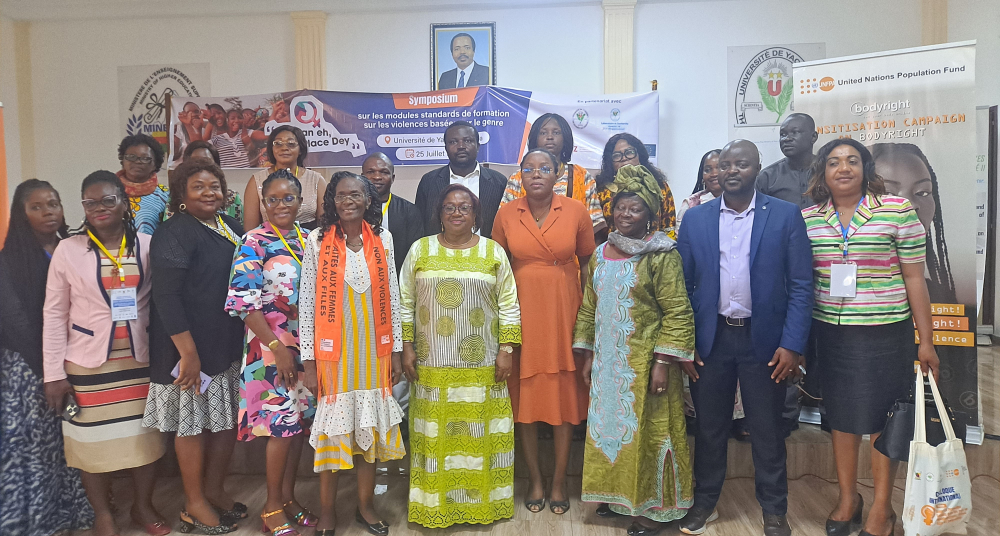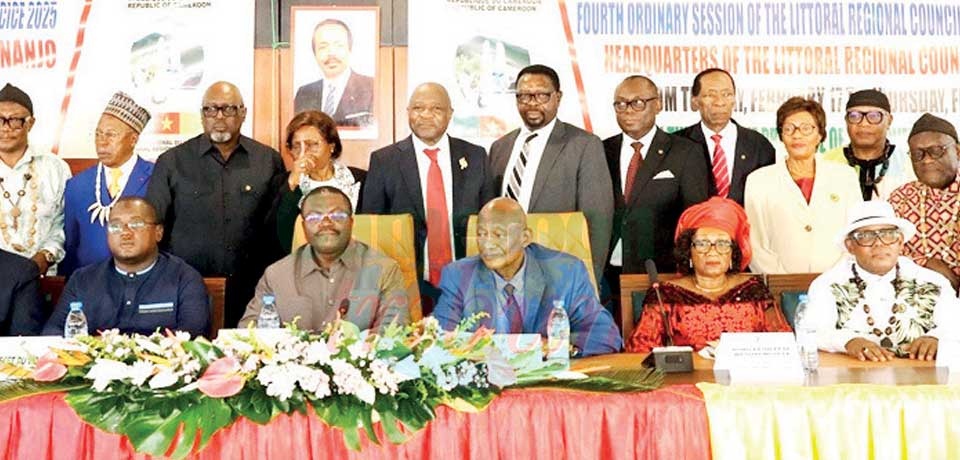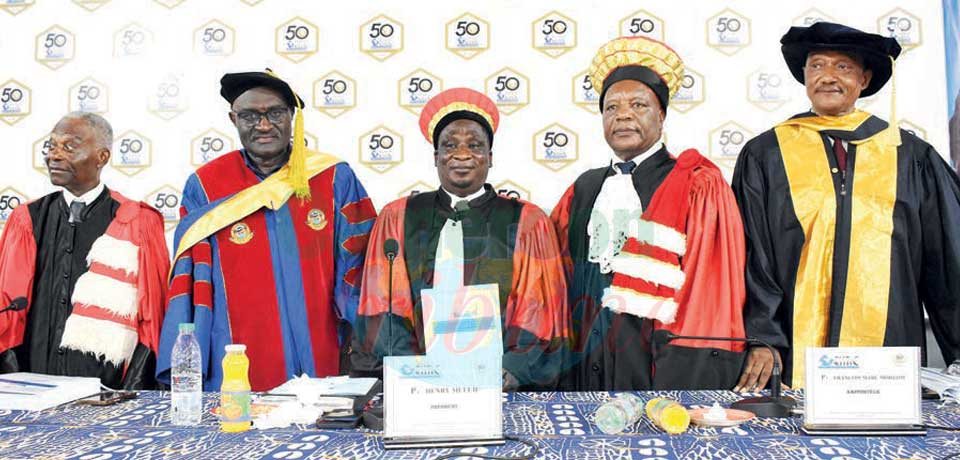Gender-based Violence : Towards A Harmonized University Training Curriculum
- Par Kimeng Hilton
- 27 Jul 2025 13:54
- 0 Likes

The United Nations Population Fund, UNFPA on July 25, 2025 organised a symposium on the subject in the University of Yaounde II.
The Gender Development Research Laboratory of the University of Yaounde II, Soa organized an international “Colloquium on Gender and Social Protection in Developing Countries: Stakes, Challenges and Opportunities” from July 24-25, 2025.
On the sidelines of which the United Nations Population Fund, UNFPA, held a symposium on “Towards a harmonized training module on Gender-based Violence, GBV in the university context: Stakes, content and how to develop the scheme of work.”
No Harmonization
“The symposium was important because we noticed that universities in Cameroon are trying to reinforce gender studies and programming, but there has been no harmonized approach in delivering GBV training. UNFPA works with GBV international standards that ensure compliance in terms of confidentiality, respect for self-determination of GBV survivors and their security.
“We therefore drew the attention of universities to coordinate the manner in which they deliver GBV training. We hope this will be reality in 2026,” explained Agnes Christelle Ndondock, Gender and GBV Specialist with UNFPA Cameroon.
Focused GBV Training
“We are thankful to the University of Yaounde II for organizing the international colloquium of “Gender and social protection in developing countries: Stakes, challenges and opportunities.” We took advantage of the colloquium to organize a side event, the symposium of Gender-based Violence training. We expect to see universities henceforth issue certificates, Bachelor’s degrees and Master’s and PhDs in GBV. There will also be a common core course for all university students reading GBV," Agnes Ndondock said.
Goodwill Of All
“This is ambitious, but with the goodwill of all parties – the civil society, government, universities and international partner organisations – this will become reality and help in reducing GBV. This will help in GBV prevention, care and mitigation of risks in our communities. This should help also to reduce the number of cases of feminicides in the country” Agnes Christelle expressed the wish.
Of Pandemic Proportions
According to Prof. Joyce Bayande Mbongo nee Endeley, the moderator of the side event panel discussion on Gender-based Training in Cameroonian Universities, GBV is pandemic in Cameroon. “University syllabuses on GBV do not have a core course that addresses it. From the symposium, we realized universities have different ways of conceptualizing GBV and different people carry out different actions – which are not coherent,” she said.
All-round Professional Training
“The symposium was therefore an opportunity for participants to conceive a GBV core course for the training of human resources to handle GBV on the field and in the academia. GBV requires research; being broken down to usable points for communication and in addressing the issue. The same person should be able to carry out field sensitization, train, gather data and help people to address the situation.” Prof. Endeley noted.
2026 Target
“The objective is that by 2026 we should have a syllabus or reference guide on GBV training in universities approved by the Ministry of Higher Education. The guide should give room for each university to adapt it to its context… The objective of the Gender and Development Research Laboratory of the University of Yaounde II is to train professionals capable of influencing policies. Gender is mainstreamed in education, governance, politics, health… because it is cross-cutting.
Holistic Training
“Students will be trained to understand the root causes of Gender-based Violence, what can be done to tackle it, care of GBV survivors and legal sanctions against GBV perpetrators,” said Prof. Helene Kamdem Kamgno, Director of the Gender and Development Research Laboratory of the University of Yaounde II. She was also General Coordinator of the “International Colloquium on Gender and Social Protection in Developing Countries: Stakes, Challenges and Opportunities.”
Role Of Advocacy
“Advocacy is important, based on the recommendations made by researchers. The Gender and Development Research Laboratory focuses on three strategic areas – research and training, awareness-raising and advocacy for research results to be taken into account...
Cet article complet est réservé aux abonnés
Déjà abonné ? Identifiez-vous >
Accédez en illimité à Cameroon Tribune Digital à partir de 26250 FCFA
Je M'abonne1 minute suffit pour vous abonner à Cameroon Tribune Digital !
- Votre numéro spécial cameroon-tribune en version numérique
- Des encarts
- Des appels d'offres exclusives
- D'avant-première (accès 24h avant la publication)
- Des éditions consultables sur tous supports (smartphone, tablettes, PC)














Commentaires